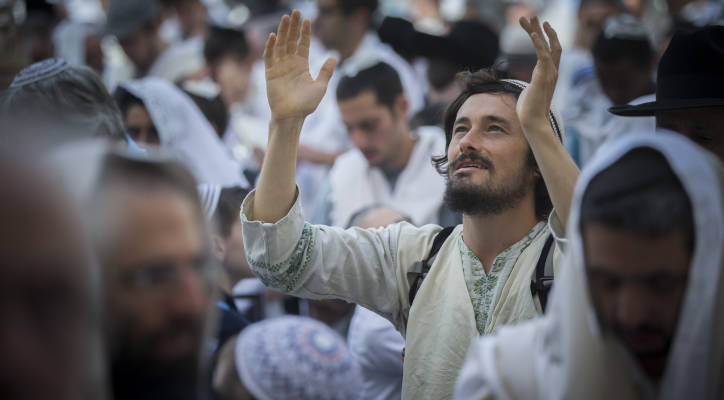
By Rabbi Ari Enkin, Rabbinic Director, United with Israel.
Why did Moses pray that God not accept the incense offering or prayers of Korach and his followers when determining who would lead the People of Israel? Wasn’t it all preordained by God anyway?
This week’s Torah portion is “Korach” (Numbers 16:1-18:32). In it, we read how the leadership of Moses and Aharon was challenged by Korach and his followers. Korach wanted to be the boss. But of course, the leadership positions were all decreed by God; Moses never even wanted the job. In order to demonstrate who was the Divinely chosen High Priest, Moses set up a test in which he challenges Korach and his followers to offer an incense offering, along with Aharon. Whoever’s incense offering would be accepted would be proof of who God has chosen as High Priest.
Our sages teach us however, that before the “competition” Moses prays that God not accept their incense offering nor their prayers. The question is asked: Did Moses really have to pray that God not accept the prayers of Korach and co.? Was Moses worried that if Korach prayed to be installed as High Priest, it would really happen? In fact, the Mishna tells us that the destruction of Korach was already planned from the six days of creation! So why did Moses have to pray that God not listen to any prayers that Korach might pray to become the leader?
It is explained that we see precisely from here the tremendous power of prayer. If Korach’s prayers would have been sincere, there was indeed a chance that God would accept them and Korach could have become the High Priest, even though God personally chose Moses and Aharon as the leaders and planned Korach’s downfall from the beginning of time. It was because of this that Moses felt compelled to beg God not to listen to their prayers.
We see a number of other examples of the tremendous power of prayer in other areas of Torah thought. For example, the Torah says that one who murders unintentionally is to be exiled to a “city of refuge” and remain there until the acting High Priest dies. As such, one would think that all the “inmates” would get together each day to pray their heart out to God that the High Priest die! In order to prevent these potentially effective prayers, the Talmud says that the High Priest’s mother would give the “inmates” all kinds of goodies so that they not pray for the death of her son!
There is also the story of the gangsters who were harassing Rabbi Meir. At first, Rabbi Meir prayed that they should die, but his wife advised him to pray that they repent and become good people! And so it was. Prayer totally affected the thinking and actions of another person!
Finally, the Talmud says that a man can get engaged at any time, even on days when celebrations are forbidden, in order that no one else will be able to get engaged to the woman first. But why should this be a concern? The Talmud tells us that marriage partners are all predestined before one is even born! If it is predestined, how could someone “beat me to it?” Here again – that is the power of prayer, able to even change things that were predestined from the beginning of time.
Don’t ever underestimate the power of prayer. Moses sure didn’t!
For more insights by Rabbi Ari Enkin on this week’s Torah portion, click on the links below.
